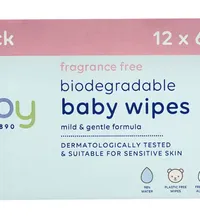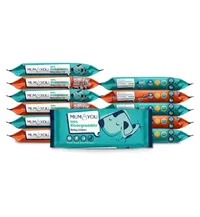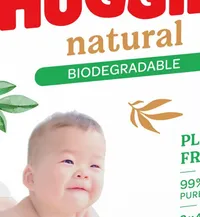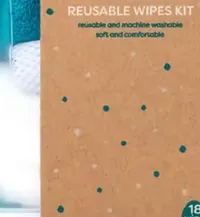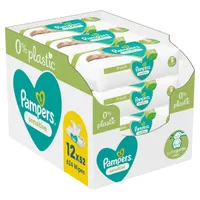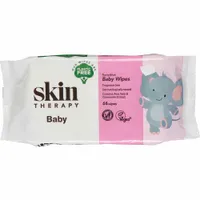Wet wipes ban: Everything you need to know including which wet wipes are plastic free
Plastic wet wipes could be banned in England

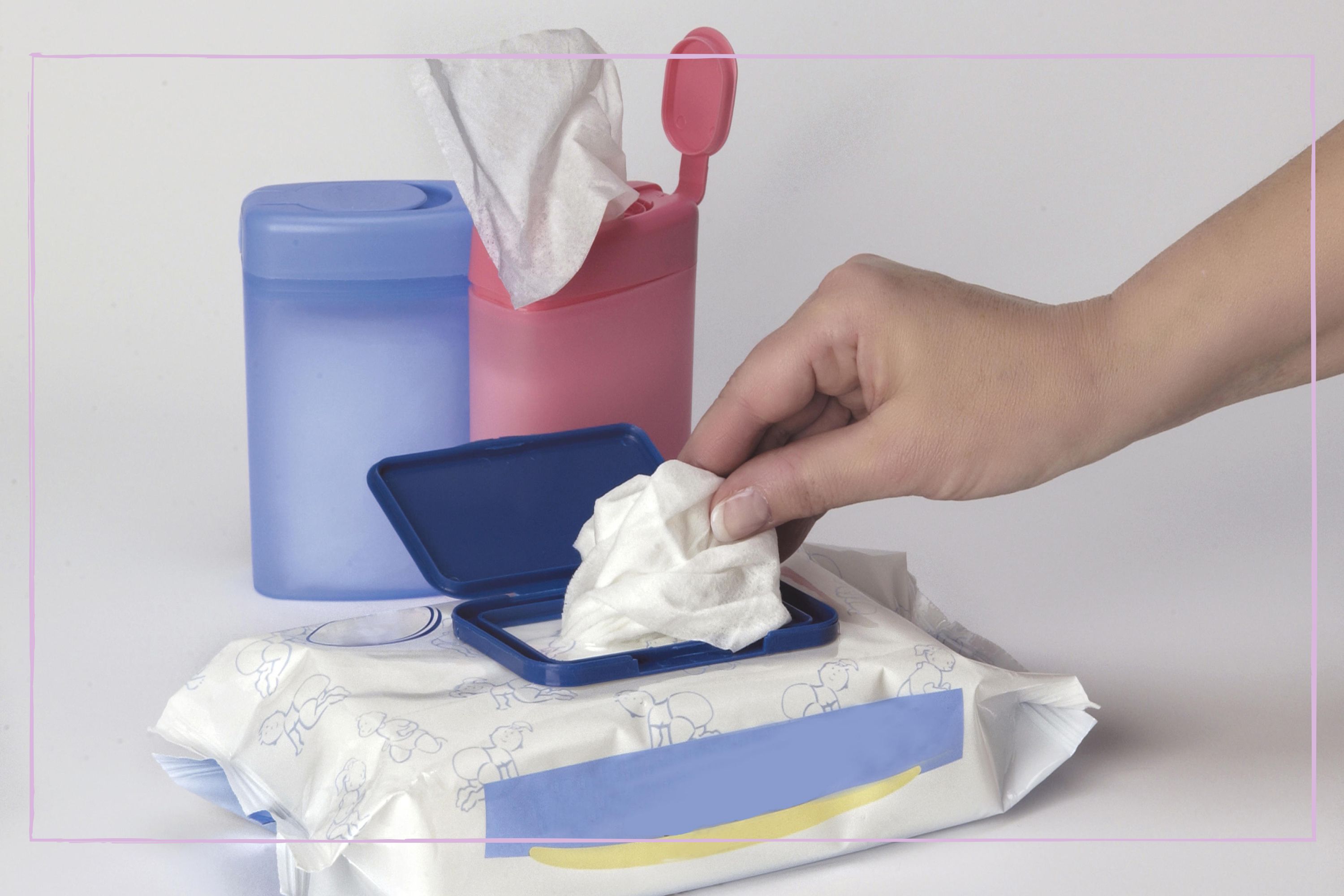
Parenting advice, hot topics, best buys and family finance tips delivered straight to your inbox.
You are now subscribed
Your newsletter sign-up was successful
The government are planning to introduce a wet wipes ban - but what does it mean for those who buy them, and which wet wipes are plastic free?
Anyone who looks after babies and small children will know that wet wipes are one of those products that are essential to have on hand at all times. But what you might not know about them is that they're a major cause of sewer blockages. Most wipes are made from plastic, which doesn't break down, and while there are a few products out there that carry the 'Fine to Flush' certification mark, the majority are extremely damaging to the environment.
For parents, there's a lot of consumer advice out there about what products you should a shouldn't be buying, and that's on top of product recalls such as the John Lewis Winnie the Pooh sleeping bags and one of Fisher-Price's sleep aids. That's why, with a wet wipe ban on horizon, we've put together this guide on everything to know about the ban, as well as a helpful list of the best plastic free wet wipes.
Are wet wipes being banned?
Wet wipes that contain plastic could be banned as part of government plans to tackle water pollution. Environment minister Therese Coffey told BBC News the ban could come into place in the next year, following a public consultation.
The ban will only apply in England, however. In Wales a proposed ban on plastic wet wipes is yet to be implemented, while in Scotland a consultation on a ban that was published in 2021 has not been taken further.
Wet wipes are one of the main causes of fatbergs that block sewers. Sewers get blocked 300,000 times every year and cause properties to flood. Put wipes in the bin instead of flushing them down the toilet. Protect your home: https://t.co/B9P8MW5cOC #BinTheWipe pic.twitter.com/03FiFvLB7CMarch 26, 2023
News of the ban came in the government's Plan for Water published on Monday 3 April, and they added that they will work with the industry to make sure environmentally friendly alternatives are available.
In addition, some major retailers across the UK have already vowed to stop selling plastic wet wipes. Boots has reformulated its own wipes to remove plastic in favour of plant-based biodegradable alternatives, and Tesco scrapped sales of branded baby wipes containing plastic in March last year.
Parenting advice, hot topics, best buys and family finance tips delivered straight to your inbox.
Why are plastic wet wipes being banned?
The government want to ban plastic wet wipes as part of a broader strategy to improve England's water quality. According to Water UK, wet wipes flushed down toilets cause 93% of sewer blockages - including so-called fatbergs - and cost around £100m a year to clear up.
This is because the plastics don't break down, and over time the wipes stick together and prevent sewage from moving through pipes. Although there are now plastic-free alternatives available to buy, in 2021 around 90% of wipes contained plastic.
However, this is not the first time the government has proposed a ban on plastic wet wipes - in fact, it's the third ban on wet wipes announced in the last five years.
The Liberal Democrat Party's environment spokesperson Tim Farron has criticised the proposal, saying, "Yet again the Conservative government is taking the public for fools by re-announcing a wet wipe policy from five years ago. This is a complete farce."
Meanwhile, Labour’s shadow environment secretary Jim McMahon said: "This announcement is nothing more than a shuffling of the deck chairs and a reheating of old, failed measures that simply give the green light for sewage dumping to continue for decades to come."
Which wet wipes are plastic free? The best biodegradable options
Boots Baby Fragrance Free Biodegradable soft baby wipes (12x64 pack) - £8 | Boots
Boots committed to stopping selling all wet wipes containing plastic at the end of 2022, and these are their cheapest biodegradable option. They're great value at £8 for a bulk buy.
Mum & You 100% Biodegradable Plastic Free Wipes (12x56 pack) - £10 | Boots
Mum & You pledge to look after your baby and the world they live in, and that's exactly what they're doing with these plastic free wet wipes - and the packaging is 100% recyclable too.
Huggies Natural Biodegradable Baby Wipes (8x48 pack) - £8 | Boots
These biodegradable wipes from baby care product specialist Huggies are sensitive on skin as well as the planet, and made from 100% naturally derived fibres. They're approved by the British Skin Foundation too.
Boots Little Stories Reusable Wipes Kit 18 Pack - £15 | Boots
Even better than plastic free wipes are those that are reusable, and these 100% cotton, machine washable wipes are great value from Boots at £15 for 18 wipes. The packaging is 100% recyclable too.
Pampers Sensitive Baby Wipes 0% Plastic (12x52 pack) - £12 | Tesco
Leading baby care and nappy company Pampers are offering this great bulk buy at Tesco. The wipes are 0% plastic and made with 100% plant-based fibres, while the water-based formula provides a soft clean.
Skin Therapy Plastic Free Sensitive Baby Wipes 64 pack - 70p | Wilko
Containing aloe vera and chamomile extract, these sensitive wet wipes are made from a renewable fibre source. Wilko forecasts that by switching all their wipes to plastic free, they are saving 1000 tonnes of plastic each year.
Which wet wipes contain plastic?
It's not always easy to work out which wet wipes contain plastic and which don't. To make sure the wipes you're buying are plastic free, check to see if they are advertised as 'biodegradable' or 'compostable' on the packaging.
You can also look for certifications from organisations such as TuV Austria, which verifies that products are biodegradable.
Around 90% of UK wet wipes contain plastic, so the best way to check you're purchasing an environmentally friendly option is to buy wipes that clearly label themselves as 'plastic free' on the packaging.
Video of the Week

Ellie is GoodtoKnow’s Family News Editor and covers all the latest trends in the parenting world - from relationship advice and baby names to wellbeing and self-care ideas for busy mums. Ellie is also an NCTJ-qualified journalist and has a distinction in MA Magazine Journalism from Nottingham Trent University and a first-class degree in Journalism from Cardiff University. Previously, Ellie has worked with BBC Good Food, The Big Issue, and the Nottingham Post, as well as freelancing as an arts and entertainment writer alongside her studies. When she’s not got her nose in a book, you’ll probably find Ellie jogging around her local park, indulging in an insta-worthy restaurant, or watching Netflix’s newest true crime documentary.
